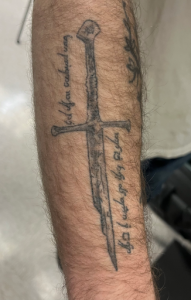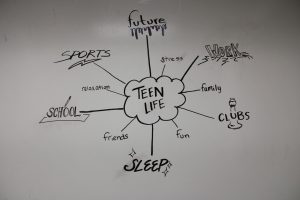Is our Free Speech Threatened?
April 15, 2019
Free speech is a fundamental right in America. In fact it’s the first right listed on the Bill of Rights. As long as what someone is saying isn’t libelous, slanderous, or puts someone in danger, people can technically say whatever they want.
That’s the issue however. These restrictions on what free speech is and isn’t are in a very gray area.
Free speech is different for everyone. For me, free speech is the ability and right to write or speak your beliefs with factual backing without fear of being censored or persecuted. Others believe that free speech is saying whatever you want without thinking of the consequences.
Being a minor and a high school reporter I’m at ground zero for free speech on a school campus. While at high school, it feels more often than not that students are being babysat by the administration. While about half the student population is 17-18 years old we are still being treated as children. It’s frustrating to be told we are being prepared for the real world and being set up to be successful adults, but we can’t have adult conversations.
However, there are rules and regulations set in place for why certain things can’t be discussed in schools. Even within schools we have areas that are more safe than others, where we can go to have tough conversations.
After Tinker V. Des Moines, the supreme court ruled that we do not lose our freedom of speech at school, but school officials can regulate certain types of student expression.
These restrictions are in place not to stop students from discussing important topics, but to teach students good judgement. Yes freedom of speech lets anyone say what they want, but when you say what you want you have to be prepared to face the consequences. Free speech doesn’t protect lash back on sharing your ideas, it only protects you from going to jail (in most cases, just don’t threaten the security of America).
So as a student it can be frustrating to not know everything, but there are reasons for these restrictions even though it may be difficult to understand at the time being. What we have to ask ourselves is why we want to say something? By saying something provoking are we doing it for the right reasons or to get attention? That’s what free speech in schools in about. Learning when we should and should not push the limits to have hard discussions.
Our generation is under extreme scrutiny for our free speech with the use of social media. Within seconds and without thinking students and adults can tweet out something without realizing the consequences of their words. One tweet can ruin someone’s career or start a movement. We have to realize our free speech effects more than ourselves.
Parkland students used their free speech to push the conversation of gun control and start a whole movement surrounding gun reform. Within a week Parkland students were on the national stage holding rallies and tweeting up a storm about what needed to change. It started the long, tough conversation about if we really do have a right to bear any arms.
Justine Sacco was a PR executive of IAC, a prominent holding company, sent out a racist, and in her eyes funny tweet, on a flight to South Africa. The tweet mentioned how Sacco was hoping not to get AIDs while in Africa to which she added “Just kidding. I’m white!”. She had every right to tweet out those words, but not once did she pause to consider the implications of what she was going to say. In the end she publicly lost her job and was shamed on twitter. The life she built for herself was over.
Free speech isn’t just about who said the words. Those words affect everyone. From a Nazi salute photo to movements like “Black Lives Matter” these words spark a conversation in everyone.
Yes being a student reporter can be frustrating at times. I feel like we as a whole school need to be more open to adult conversations to help us prepare for a future where our every word will be monitored. But these restrictions are in place from keeping students from saying things they will regret in the future and a way to keep us all safe.
The most effective speech comes from good judgement of when to stir the pot and knowing why you want to, not just saying something to say it.






